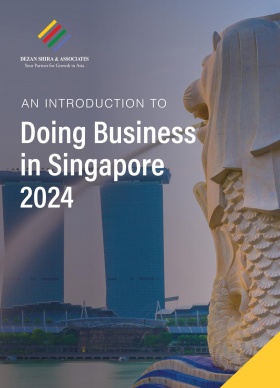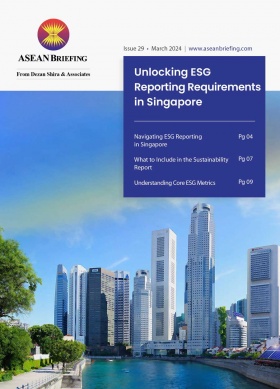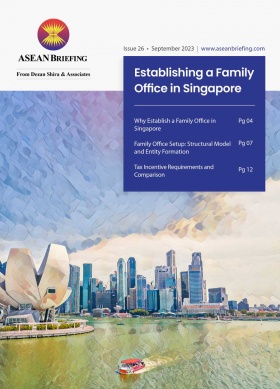Singapore Strengthens Anti-Money Laundering Legislation
Singapore has revised its Anti-Money Laundering Act to strengthen its regulatory framework and improve enforcement against money laundering and terrorism financing. These changes follow the country’s largest money laundering case, which led to the seizure of S$3 billion in assets and the arrest of 10 foreign nationals.
Singapore amendments to the Anti-Money Laundering Act: Changes to existing legislation
Income Tax Act 1947 and the Goods and Services Tax Act 1993
The Act will introduce changes to the Income Tax Act 1947, and the Goods and Services Tax Act 1993, to enable agencies like the Inland Revenue Authority and Singapore Customs to share tax and trade data with Singapore’s Financial Intelligence Unit, and its Suspicious Transaction Reporting Office.
Further, the Council for Estate Agencies and the Accounting and Corporate Regulatory Authority will have access to suspicious transaction reports filed by entities.
Casino Control Act
The Act will amend the Casino Control Act 2006 to enhance customer due diligence requirements for casino operators in Singapore by lowering the threshold for mandatory checks. Previously, these checks were required for single cash transactions of S$10,000 (US$7,500) or more, or deposits of S$5,000 (around US$3,900) or more.
The new threshold is set at S$4,000 (US$3,000) for both cash transactions and deposits.
Criminal Procedure Code
The Act introduces revisions to the Criminal Procedure Code 2010 and the Corruption, Drug Trafficking, and Other Serious Crimes (Confiscation of Benefits) Act 1992 to streamline the handling of seized or restrained assets.
These changes allow courts to order the sale of assets that are either depreciating or expensive to maintain without needing consent from all parties involved. However, the court must first be satisfied with specific criteria before approving the sale. Additionally, the sale cannot proceed unless all parties with a known interest in the asset are notified and the court determines that the sale costs are reasonable. Law enforcement agencies will also be granted the authority to reduce maintenance expenses for seized assets, helping preserve their value and enabling more efficient asset recovery and restitution to victims.
Provisions on property belonging to suspects
The Act also implements provisions to handle properties tied to suspects who have fled, ensuring that these assets cannot be claimed unless the absconding individual participates in the investigation. Additionally, the Act eases the burden on prosecutors by eliminating the need to prove direct connections between criminal activity and suspected laundered money in Singapore, a task often difficult in cross-border cases. It will be sufficient to demonstrate beyond a reasonable doubt that the suspect knew or had reasonable grounds to believe they were handling criminal proceeds.
Foreign environmental crimes
The Act adds serious foreign environmental crimes such as illegal mining, wildlife trafficking, logging, and waste trafficking as money laundering offenses. This targets the rising trend of funneling proceeds from these activities through Singapore’s financial system. The new provisions empower law enforcement to investigate money laundering offenses when there is suspicion that funds in Singapore are linked to these crimes committed abroad.
The amendments to Singapore’s Anti-Money Laundering Act reflect the country’s commitment to strengthening its regulatory framework and enhancing enforcement against money laundering and terrorism financing. By tightening customer due diligence, improving asset management, and addressing emerging threats like foreign environmental crimes, Singapore aims to protect its financial system from abuse.
About Us
ASEAN Briefing is one of five regional publications under the Asia Briefing brand. It is supported by Dezan Shira & Associates, a pan-Asia, multi-disciplinary professional services firm that assists foreign investors throughout Asia, including through offices in Jakarta, Indonesia; Singapore; Hanoi, Ho Chi Minh City, and Da Nang in Vietnam; besides our practices in China, Hong Kong SAR, India, Italy, Germany, and USA. We also have partner firms in Malaysia, Bangladesh, the Philippines, Thailand, and Australia.
Please contact us at asean@dezshira.com or visit our website at www.dezshira.com and for a complimentary subscription to ASEAN Briefing’s content products, please click here.
- Previous Article Philippines Public Holidays: Essential Dates for 2025
- Next Article India-Indonesia Bilateral Trade Trends







